How Different Types of ERP Systems Facilitate Effective Scalability for GCC Enterprises
With the Gulf heading into a transformative decade for business change, businesses in Saudi Arabia, the UAE, Qatar, and the wider GCC markets are beginning to realize that ERP is no longer the back-office software, it’s the growth nervous system. That’s where the exception comes in: all types of ERP are not created equal.
The all-you-can-do approach is vanishing quickly. While a Jeddah-based manufacturer has totally different issues from those of a Dubai-based hospitality concern or those of a Doha-based retail chain, that’s where types of ERP templates come into play. Rather than making businesses fit into generic software, they are customized according to the sector’s workflows, regulatory requirements, and customer expectations.
Here in this blog, we’ll deconstruct how ERP classifications are transforming industries within the GCC, why the need for customized systems is going through the roof in 2025, and how companies can take the right technology to scale successfully and outperform competition as well.
Beginning the ERP 2025 Debate
By 2025, the discussion of types of ERP in the GCC has become radically different. ERP software for decades was viewed as back-office utilities, platforms to transact, to reconcile accounts, to conduct simple supply chains. But today, the rates of enterprise growth throughout Saudi Arabia, the UAE, Qatar, and the broader region have surpassed that antiquated definition.
GCC is growing at a higher rate than many of the world’s markets. Saudi Vision 2030 mega-project, UAE’s booming expansion of hospitality and retail sectors, and Qatar’s post-World Cup drive to build infrastructure have all contributed to a space wherein decisions in real-time become more important than dashboards. No longer are businesses happy with a product that merely informs us of yesterday’s activity. They require those platforms that can predict what is next tomorrow.
That is where the next-generation ERP steps into the frame. Organizations are posing tougher questions:
- Does my ERP automatically keep up with changing local requirements for compliance?
- Do they scale to Riyadh, Dubai, and Doha without creating silos?
- Does it report in sufficient advance to take the right actions, not after the fact?
- Does it allow for custom workflows of my industry in preference to requiring me to fit into templates?
Just so. Generic types of ERP can’t meet these requirements. A construction company handling multi-unit projects in Saudi Arabia, a F&B restaurant chain growing throughout the UAE, or indeed a merchant handling fast-moving stocks across borders, none of them can afford delayed visibility or cookie-cutter workflows.
2025 has transformed types of ERP from a system of record to a system of intelligence. And for GCC businesses, that change isn’t mandatory, it’s the foundation upon which to scale efficiently, stay compliant, and make decisions that keep up with market conditions.
The Price of Staying Generic
GCC businesses that are still operating on generic ERP are only starting to realize the hidden costs, and they’re not limited to dollars and cents. The need for real-time insights, adapting to changing compliance models, and growing seamlessly by industry has revealed the constraints of all types of ERP.
1. Putting off Decisions Means Lost Opportunities
Projects in the Saudi and UAE markets proceed at a frenetic pace. Delays in procurement transparency or improper forecasting can freeze up the entire supply chain. Standard ERP generic software usually needs manual report consolidation prior to making any decisions. Numbers usually come to leadership after the moment has passed.
2. Risks of Non-Compliance
GCC regulatory landscape is taking hold at a rapid pace. Whether it’s ZATCA e-invoicing in Saudi, UAE’s corporate tax structure, or changing labor regulations, companies require systems that localize changes in real-time. Generic types of ERP products don’t fare well here, they tend to take time localizing changes, so companies handle compliance through manual intervention. That means risks of fines, penalties, and even reputational risk.
3. Silos Across Borders and Sectors
For enterprises with operations in multiple GCC countries, siloed data is one of the biggest pain points. A retail chain with outlets in Dubai and Riyadh, or a construction firm managing projects in Doha and Jeddah, can’t afford fragmented visibility. Yet generic ERP solutions rarely handle multi-country complexity well. Instead of a unified picture, enterprises get fragmented reporting, forcing teams to patch the gaps with spreadsheets.
4. High Overheads from Manual Workarounds
As soon as a system does not “fit” the business model, employees devise manual workarounds. The finance teams export to Excel, project managers use distinct trackers, and compliance officers use third-party software. What appears to be an operating ERP is actually a quilt of disparate processes. It is not only inefficient, but it also consumes margins, raises the error rates, and is a painful experience at scale.
5. Customer Experience Suffers in Competitive Markets
Where customer experience is paramount, as it is in hospitality and F&B sectors that the GCC is making world headlines. Generic ERP can’t seamlessly interlink between POS, inventory, procurement, and finance, resulting in either delayed order fulfillment, stockouts, or price variances. Where expectations are at their loftiest, such functional gaps directly strip away at customer trust.
Why Generic ERP is Going to be Obsolete in GCC by 2025
GCC’s business environment is no longer about handling the fundamentals, it’s now all about anticipation, compliance, and velocity. Businesses that stick to antiquated, commodity ERP platforms are not only losing out on efficiencies, they’re actually placing themselves at a competitive disadvantage.
The cost of being generic, in the year 2025, is paid in:
- Lost sales to faster competitors.
- Margins lost to manual inefficiencies.
- Risks of regulatory divergence.
- Customer loyalty eroded by gaps in operations.
Simply stated, generic types of ERP systems are no longer benign technology; they’re liabilities. Companies that see that change early will reap scalable growth, and others will be mired in firefighting.
Why Industry-Specific ERP Wins in 2025
Both generic and industry-specific ERP are simple: the former needs workarounds, while the latter is like it was designed for your business from day one. GCC businesses do not want systems that they need to “bend” anymore, they want out-of-the-box ERP that boosts growth.
Industry-specific types of ERP in 2025 are yielding three overarching advantages:
- Speed to Value: Faster implementation and adoption as workflows are pre-modeled.
- Compliance Confidence: Pre-configured local regulation support, from ZATCA e-invoice to UAE corporate tax.
- Scalable Growth: Scalable architecture that can handle multi-branch, multi-country, and multi.
Regionally-specific ERP is no longer “high-end” software; it’s becoming Table Stakes for companies that want to compete in the region.
2025 Playbook: Choosing the Right ERP Category for Businesses in the GCC
GCC is full steam ahead. New compliance models, expansion plans, and competitive forces dictate that ERP decisions can’t wait to transform. Determining the right types of ERP models for 2025 is less about capabilities and more about strategic fit for the path your enterprise is taking.
Step 1: Match ERP Types to Your Core Business Model
Its first filter is simple: what is your business driver?
- Hotels & Resorts: Opt for Hospitality ERP with modules for booking, POS, and guest interaction.
- E-commerce Participants and Retailers: Comprehensive supply chain logistics and omnichannel sales, Retail ERP.
- Manufacturers: ERP for manufacturers with production plans and quality assurance.
- Construction Companies: Project & Construction ERP for contract and multi-phase scheduling.
- Distribution: Distribution ERP with warehouse, logistics, and vendor synchronization.
A generic ERP can check boxes, but only an industry-specific ERP can be integrated into your daily operations.
Step 2: Assess Compliance as a Fundamental Requirement
ERP is not only about efficiency, it is survival through audits and retention of your license to operate. In the region, that translates to:
- Saudi Arabia: ZATCA e-invoice roll-out phases, GOSI.
- UAE: Reporting of corporate tax, WPS payroll.
- Qatar, Kuwait, Bahrain, Oman: Each of them has their own reporting requirements and labour regulations.
If your ERP is not of that type that has incorporated compliance modules or can quickly transform itself, you’ll be paying for it later through fines and rework.
Step 3: Ensure Scalability from Day One
Many of the GCC companies start local but quickly become cross-border, for example, a retail chain from Riyadh launching stores in Dubai, or a Saudi construction company carrying out work in Qatar. Your ERP choice should:
- Manage multi-country operations without coming apart.
- Support multi-currency and multi-language user interfaces (Arabic-first is the norm).
- Grow horizontally (new outlets, branches, plants) and vertically (new lines of business).
Step 4: Move Beyond Dashboards to Real Decisions
Your preferred type of ERP should allow for agility, not just reporting problems. The best platforms of 2025 operate on AI-driven insights, predictive intelligence, and automations. That’s not “nice to have”, that’s how businesses reduce costs, prevent risks, and capitalize on growth opportunities before competitors.
Step 5: Test Integration, Not Just Modules
Whichever ERP model you choose, it will not operate in a silo. Test to see if it can integrate with:
- Banks and payment gateways (for fast reconciliations).
- E-commerce and POS solutions (for fully integrated retail operations).
- HR, payroll, and compliance software (less manual intervention).
- Supply chain partners (For clear vendor and logistics sync).
HostBooks’ Take: Why Agentic AI ERP is Appropriate for 2025 GCC Enterprises
As leaders within the GCC assess ERP solutions today, the discussion gets bogged down in “modules” and “dashboards.” But in 2025, the victors won’t be those with additional dashboards. It will be those with fewer interruptions, fewer blind spots, and quicker decisions. That is right where HostBooks comes into play.
Beyond the Dashboard: Choosing with Agentic AI
HostBooks Enterprise is powered by Agentic AI, which not only reports numbers, but also takes action. While old ERP systems indicate a stock shortage, HostBooks foresees it, initiates a reorder, and fine-tunes vendor terms before it creates disruption.
Why It Matters to GCC Businesses
- Multi-Industry Fit: From a Dubai hotel to a Dammam manufacturing plant to a Doha retail chain, HostBooks provides industry-specific intelligence ingrained into workflows.
- Simplifying Compliance: ZATCA e-invoice, UAE corporate tax return, WPS payroll, GOSI compliance, rather than developing custom compliance workarounds, HostBooks integrates them into the application.
- Scalability First: As operations often cross borders quite regularly, HostBooks scales effortlessly, supporting multi-currency, Arabic-first interfaces, and multi-location installations.
- Real-Time Control: Finance, HR, inventory, procurement, and sales don’t operate in siloes. HostBooks keeps leaders with only a single source of truth, in real-time.
What HostBooks Does Differently in 2025
- Predictive Insights predict risks, flag up anomalies, and estimate demand accurately.
- Automated Optimization continuously optimize margins and reduce working capital stress.
- Always-On Compliance audits as a byproduct, not disruption.
- Industry-Specific Depth not generic ERP, but industry-specific modules for hospitality, F&B, retail, construction, and manufacturing.
- Decision Precision HB Zeno, its AI agent, continuously refines its choices the more you use it.
The Call for GCC Businesses
ERP choice in 2025 is not “open source vs proprietary” or “cloud vs on-premise” anymore. It is choosing a partner that thinks ahead of your operations. HostBooks not only automates workflows, but it also builds up an autonomous intelligence layer that unlocks growth, builds resiliency, and enables compliance for all GCC businesses.
Its pitch is simple: While most ERP software offers dashboards, HostBooks offers decisions.
ERP Change GCC Companies Cannot Afford to Delay
As we head deeper into 2025, businesses in the GCC find themselves at a fork in the road. Fragmented tools and old-line systems can’t match real-time compliance, multi-national operations, and the urgency of decision-making that today’s markets require.
Putting off the ERP upgrade to that “ideal moment” is no longer feasible, each passing day adds up to higher costs, lost opportunities, and risk of non-compliance. One truth is indelible.
Saudi Arabia, UAE, Qatar, and other nations’ businesses that will be the most competitive will be those that realize ERP is the beginning of agility, of scalability, of transparency over operations. That’s why HostBooks Enterprise is distinct. Driven by Agentic AI, it does more than allow you to view operations in real-time, it allows you to optimize and act in real-time.
From predictive analytics to auto-compliance, from region-wide scaling to making audits simple, HostBooks brings intelligence that GCC leaders need to stay ahead.
That’s the simple choice: Stick with old technology that keeps you in react mode, or get to grips with an ERP that thinks as quickly as you do. HostBooks Enterprise is built for the GCC of the future. And for businesses that are willing to grow with confidence in 2025, the future starts now.

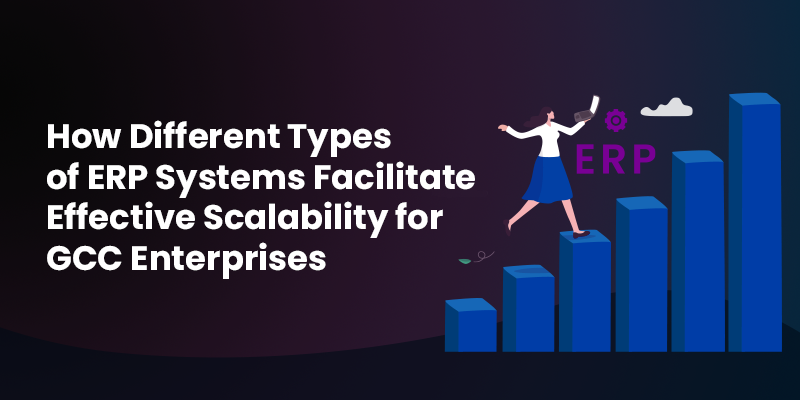
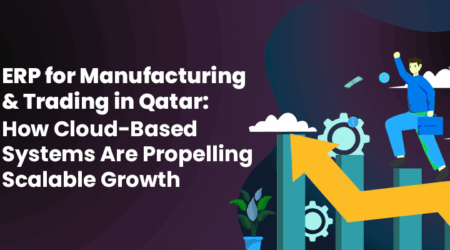
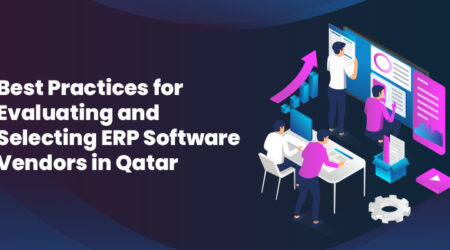
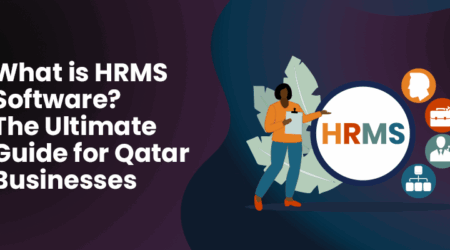
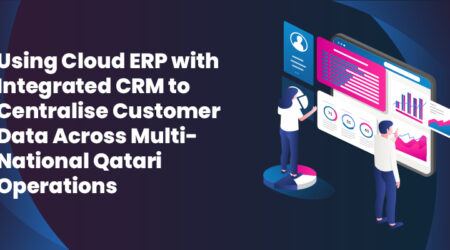
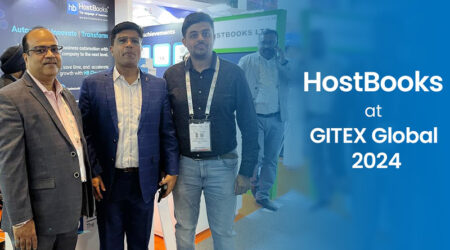
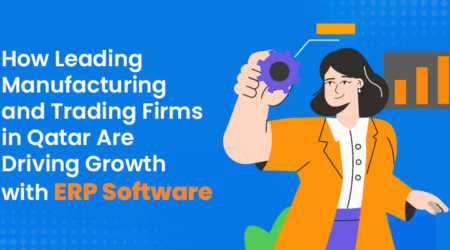
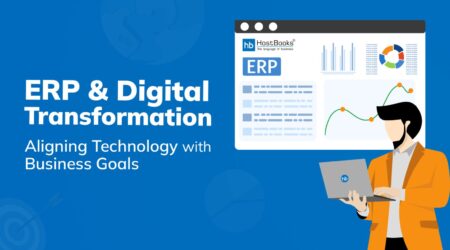
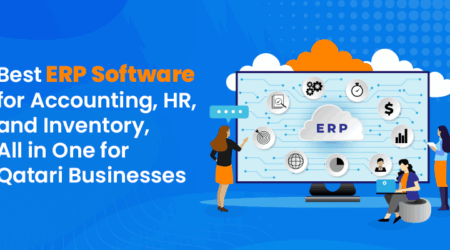
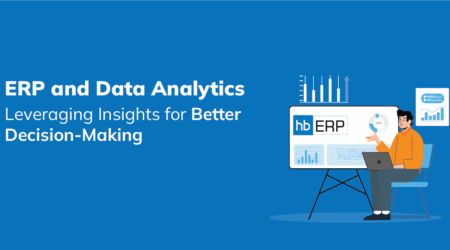
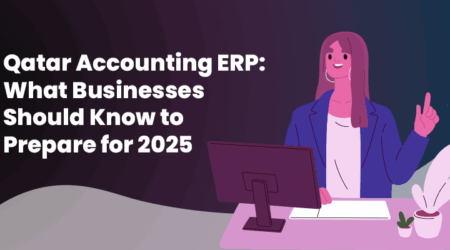
Leave a Reply